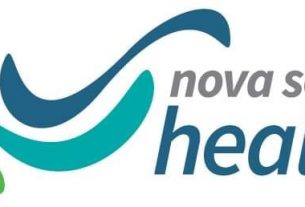**** COMMUNITY SERVICES Media Release
Funding for Permanent Supportive, Transitional Housing in Halifax, Annapolis Valley
—————————————————————-
The government of Nova Scotia is providing $6.4 million to create permanent supportive housing for people experiencing homelessness in Halifax and the Annapolis Valley.
This is in addition to more than $1 million recently invested in permanent supportive housing in Cape Breton, temporary shelter beds in Halifax and a community study focused on creating permanent housing options for up to 100 women and children.
As part of the announcement today, May 31, the Affordable Housing Association of Nova Scotia will receive $3.5 million to purchase properties in the Halifax area that will provide housing for people with the highest needs who might otherwise remain homeless.
The province has also committed $1.8 million per year to cover annual operational costs and on-site client services, such as clinical care, peer support, addictions and mental health supports.
“These initiatives further our government’s commitment to finding permanent housing for Nova Scotians experiencing homelessness and will reduce the need for emergency responses,” said Kelly Regan, Minister of Community Services. “I believe these units will be life-changing for many Nova Scotians and will help people receive the supports they need.”
As well, the Portal Youth Outreach Association will receive $1.1 million to create three new transitional houses for young people experiencing homelessness in the Annapolis Valley. The houses, planned for Middleton, Kentville and Windsor, will provide housing and supports for 14 youth aged 16 to 21 and will be ready by fall 2021. Young people can stay in these houses from three months to three years, depending on their needs and their capacity to transition to permanent housing.
This funding will provide access to safe housing and wraparound supports including school and career planning.
This funding is part of a province-wide effort to ensure Nova Scotians who are experiencing homelessness have safe, available housing, and to create more options for permanent supportive housing. Other recent investments include:
— $553,000 to fund permanent supportive housing for 14 men at two locations in Cape Breton
— $100,000 for four community organizations to develop a proposal for a community hub with a mix of permanent housing options for up to 100 women and children
— $350,000 to add 15 temporary shelter beds in Halifax
There has already been significant progress under the Integrated Action Plan to Address Homelessness, introduced in February 2020. From April 1, 2020, to March 31, 2021, 952 people were housed across Nova Scotia, compared to 567 in 2019-20.
Quotes:
“When you are experiencing homelessness, secure and supportive housing is the starting point for turning your life around. The pandemic has created additional challenges for already vulnerable homeless people, and this investment will make a profound difference in addressing the lack of supportive housing for people who are now unhoused in our community despite all available resources.”
– Jim Graham, executive director, Affordable Housing Association of Nova Scotia
“Youth transitional housing is key in the housing continuum and we are looking forward to a significant change in our response to youth that find themselves homeless. Having this step for youth transitioning to adulthood will provide a needed option to help with the stress that comes from family breakdown and couch surfing.”
– Russ Sanche, executive director, Portal Youth Outreach Association
Quick Facts:
— this funding will help provide permanent supportive housing for up to 100 people experiencing homelessness
— since June 2020, the funded housing locator in Halifax accessed more than 160 units to support families and individuals experiencing or at risk of homelessness
— in the Halifax region over the past six months, 107 fewer (net) individuals identified as homeless and 102 individuals were housed
— as of May 25, there are 383 people identified as actively homeless in the Halifax region and seeking support; this compares to 490 people on Dec. 8, 2020
— a homelessness count conducted in October 2020 reported 51 youth experiencing housing instability and homelessness in the Annapolis Valley
Affordable Housing Commission Presents Recommendations
A new report prepared by the Nova Scotia Affordable Housing Commission details the province’s urgent need for improved affordable housing.
The 61-page report, titled Charting a new course for affordable housing in Nova Scotia, includes 17 recommendations and 60 meaningful actions to the provincial government to help meet the diverse housing needs of Nova Scotians. The report was submitted to Infrastructure and Housing Minister Geoff MacLellan today, May 31.
The commission calls on the province to implement a number of quick-start investments that include a $25 million commitment to support between 600 and 900 households in housing need in the very near term. While both short- and long-term action is necessary, these investments can help create immediate change at this important tipping point and pave the way for continued meaningful and transformational change to the province’s public housing model.
The commission’s recommendations are rooted in its belief that everyone has the right to adequate housing and that housing is a critical sector of our economy and a social determinant of health. The recommendations are thoughtful, broad and balanced, and rooted in evidence and best practices. They chart a new course for resilient, vibrant communities in which all Nova Scotians can live in safe and affordable homes.
Over the past six months, the commission has drawn on the insights and experiences of 36 experts and more than 2,000 Nova Scotians through an extensive public consultation process. This process included more than 1,200 survey respondents, more than 570 suggestions from the public online and more than 400 participants in virtual workshops and focus groups. The commission is grateful for those who shared their ideas and knowledge, helping inform the recommendations.
The Affordable Housing Commission was formed by government in response to the province’s affordable housing crisis, which has been exacerbated throughout the pandemic. The commission was mandated to examine the current state of affordable rental housing and recommend meaningful action to ensure better affordable housing options for Nova Scotians. Its 17 appointed members come from various sectors and regions across the province and possess an array of experiences and ideologies.
Quotes:
“The pandemic has exacerbated Nova Scotia’s affordable housing crisis. Strong, decisive and immediate action from our government is needed. We call on the province to act now. There is no magic solution, otherwise we wouldn’t be here. The one silver bullet is our ability to work well with each other, and as partners we can chart a new course to meet today’s demand and plan for tomorrow.”
– Ren Thomas, associate professor at the Dalhousie University School of Planning and Affordable Housing Commission co-chair
“We heard from stakeholders that we must transform our public housing model to meet the diverse and changing needs of our population. Government housing organizations in other parts of Canada and the world have adapted and transformed to meet the needs of those they serve, and we have to do the same.”
– Eiryn Devereaux, deputy minister, Infrastructure and Housing and co-chair, Affordable Housing Commission
Quick Facts:
— 12.1 per cent of Nova Scotians lived below the poverty line in 2019 – the second highest rate in Canada – and 11.4 per cent (45,100) of Nova Scotian households are in core housing need
— Almost 70 per cent of public housing tenants and 60 per cent of rent supplement clients in Nova Scotia are women; people of African descent and other racialized groups continue to experience systemic barriers when they try to access affordable housing
— Nova Scotia’s population grew from 942,970 in 2016 to 979,449 in 2021 (as of Jan. 1), but the housing supply has not kept pace with demand
Additional Resources:
The Nova Scotia Affordable Housing Commission final report: http://beta.novascotia.ca/documents/affordable-housing-report-spring-2021
Commission members: http://nsaffordablehousingcommission.ca/getinvolved/news_feed/commission-members
Government to Evaluate Affordable Housing Commission Report, Recommendations
——————————————————-
Government will begin evaluating the final report of the Nova Scotia Affordable Housing Commission and discuss next steps with partners in the affordable housing sector and other levels of government.
The report, submitted to government today, May 31, represents six months of work by the 17 commission members and thousands of submissions from Nova Scotians. It includes 17 recommendations, providing a road map with sustainable, long-term options for government and affordable housing partners.
“I want to personally thank the commission and all Nova Scotians who took the time to participate in this important process,” said Infrastructure and Housing Minister Geoff MacLellan. “These recommendations will help us make evidence-based decisions about how to move forward. It is clear that affordable housing is a priority for Nova Scotians and it will continue to be a priority for government.”
Quick Facts:
— together, the federal and provincial governments are investing $513 million over 10 years in affordable housing projects and programs
— in 2020-21, more than 1,800 low-income homeowners received assistance to make a home repair or adaptation
— more than 3,100 households currently receive a rent supplement
Additional Resources:
The Nova Scotia Affordable Housing Commission final report: http://beta.novascotia.ca/documents/affordable-housing-report-spring-2021
Housing Action Plan: http://housing.novascotia.ca/sites/default/files/NS_Housing_Action_Plan_2019.pdf




